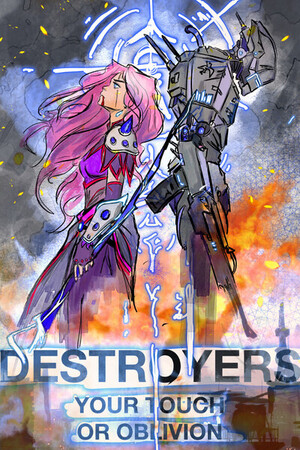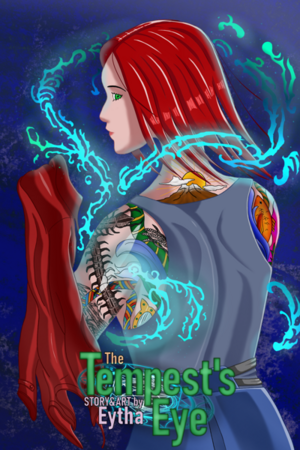Chapter 16:
2.6) Chaotic Solitude
Mr. Atlas
Atlas watched the bus drive away as Julian waved at him through the window seat.
Atlas stared at the Post-it note in his hands; Julian had written him a phone number in case he needed anything. It was mildly amusing–he didn’t have any coins to use a payphone.
As he turned and faced the homeless shelter, he already knew that he wasn’t going to stay there. He was homeless, yes, but he wasn’t in need of a home.
Or maybe he was, in a way. He had gotten a taste of human relationships thanks to the Everhart siblings–he had remembered what it felt like to hear voices instead of his own. It was good.
But once again, he was alone. Once again, he was reminded of the situation at hand. The world would end in a few weeks because of his inaction. He knew this from the start, but it now dawned on him that the two siblings would die because of him because he had chosen to do nothing.
He crossed his arms and stared into the sky. The stars were shining, and the Sun had been replaced by the moon. Even the appearance of the sky changed. The only thing remained constant was the existence of the sky itself. And in the end, it seemed he was fated to be always alone with the sky.
He was Atlas: the invincible man who was doomed to carry the weight of the world on his shoulders, alone, protecting all of humanity from certain death. On paper, it was the most valiant task that any human could undergo.
But it was paradoxical: he was destined to carry the weight of the world for people that he would never see; for people that would never know him; for people he didn’t even know existed because he was always alone.
Even now, neither Julian or Mary knew of his true nature. And he didn’t feel the need to tell them, either: he hadn’t prevented the apocalypse for them in particular. They owed him nothing. In fact, they weren’t even born when he had begun his fight against the sky.
Which brought up the question once more: why exactly had he held up the sky?
He still wasn’t sure about the initial reason that caused him to hold up the sky to begin with, but it was obvious that he had once found humanity worth fighting for. Perhaps he had believed in their potential to grow, or perhaps he had accepted humanity despite their flaws. Or perhaps he had people he loved.
People I loved…
He closed his eyes. Yes, it was likely that he must have had people he loved. Maybe he also had a strong connection with his parents, just like Julian did with his. Maybe he had a wife. Maybe he had a son or a daughter.
The truth was that he had memories of such things–or at least, he believed he did. But he had no idea how he could confirm them to be true. He had stayed alone for too long, and the truth had merged with his imaginations, amalgamating the supposed truth.
As an example, Atlas believed that he had a wife–but like every other memory he had, he had no idea if it was true.
Perhaps he really did have a wife. Maybe she was blonde or brunette. Maybe she was tall or short. Maybe she was smart, maybe she was kind, maybe she was righteous. Or, maybe she didn’t exist. Maybe her entire existence was made up at some point along the way.
Either way, he ended up believing that she was real. That she existed, that there was someone who had hoped for his triumph.
This was one of the essential ways he endured his solitude–by allowing his mind to believe, believing in anything that would allow him to continue the fight. And a part of him had strongly believed that there would be some kind of valhalla awaiting him at the end of his struggles.
But there he was, at the end of that struggle, being dropped off by a college student at a homeless shelter. His parents were likely dead, and whatever family or friend that still existed would not recognize him. Nobody knew who he was, not even himself. And he was all alone, with all this knowledge of what he had done and his own overwhelming power. This was his reward.
He wasn’t offended or angry. He was simply disappointed by existence itself. In the end, all the reasoning he had used to convince himself to continue fighting could not justify the results he saw now.
He looked at his hand, then lifted it up in the direction of the nearby buildings.
It would only take a single motion of his hand to bring destruction into this quiet night. But years of staying still had trained him not to listen to any strange thoughts in his head. He was trained not to act on impulse. He was patient.
He sighed, lowering his hand.
Perhaps it was his patience that limited him from using this power to its fullest potential. It wouldn’t be so hard to submit the world to his will–to get anything he wanted. But he didn’t want to enforce his power on anyone or use his power for a selfish reason.
This rendered him quite useless. Like Julian had said, he had no money, meaning that there was no real way for him to repay anyone for giving him anything. He couldn’t buy food for himself or go do things like a regular member of society would.
Perhaps he could wander the world. Using his powers to travel would not hurt. But he didn’t exactly desire that, either: that would just mean more solitude. More time alone in his head, more time being a nobody.
Yes. He was a nobody: his mind was broken and had no idea what part of his perceived history had actually happened and what part was made up. He had lived the past thirty-two years as a statue who had imagined his own history.
He closed his eyes, as thoughts and memories flashed through his mind. It was starting to hurt his brain, just like it always did when he was holding up the sky.
In the end, he was always doomed to be this way, and the only way he could quiet his mind was by sleeping. That seemed to be the only way he could stop his suffering.
He took a deep breath, then exhaled.
… No. That’s wrong.
Yes, maybe the past thirty-two years of his life was a convoluted mess–but he was still sane enough to realize what had happened today. He had met Julian and Mary, the two siblings. That much was true. When he was with them, his mind became quiet. Their existence affirmed his own existence. They reminded him that he was in reality.
He looked at the Post-it note. This phone number was evidence that there was someone who cared for him in this world. He looked down at his clothes. His clothes were evidence that he had indeed spent time with Julian and Mary on that field.
He remembered what Mary had told him: “I’ll probably see you again…”
He remembered what Julian had told him: “the only thing that can truly return the care you give to the world is another living being.”
Was it too late to try and alleviate this chaotic loneliness that filled his heart and mind, at least for a little while? He wanted to know what he had fought for all this time. To get to know the people who he had protected all this time.
Luckily for him, the two siblings had left open lifelines for him to cling onto. Perhaps they were his guides that would allow him to reintegrate with his humanity before the world came to an end.
It was decided: he wouldn't sleep off his remaining days on Earth. His life wasn't over. Not yet.
And because he owed them for their kindness–he decided that if it was necessary, he would use his powers to make their wishes come true, at least until their final days. Perhaps he could help them enjoy their remaining future.
And maybe, just maybe, he would regain his will to fight.




Please sign in to leave a comment.